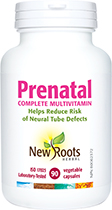Your Guide to a Healthy Pregnancy
Congratulations on your pregnancy! If you are pregnant or planning to become pregnant, this article is for you.
With the many changes you are going through, you may have concerns on how you and your growing baby can stay healthy. It is important that you can access accurate information and supportive care providers that know your unique needs.
Here are some general guidelines for staying healthy during your pregnancy. Do take note that this information is not meant to replace the advice you may receive from your health-care practitioners.
Prioritize Nutrient-Dense, Protein-Rich Meals
Foods are made up of different nutritional profiles, i.e., carbohydrates, proteins, and fat content. It is always helpful to become familiar with food groups that are denser in specific macronutrients. The key to balancing your meals is diversifying your food. People often feel more satisfied with a complete meal consisting of protein, fats, and carbohydrates. Adequate protein intake is beneficial in many ways. Protein-rich foods naturally contain micronutrients required in higher amounts during pregnancy, such as vitamin B12, choline, zinc, iron, and vitamin A. Balanced meals allow for consumption of nutrients that are satiating. Overeating can be minimized. More importantly, blood sugar and insulin levels can be better regulated—this is essential in the management of gestational diabetes.[1], [2], [3]
Keep Yourself Hydrated
Your water intake does more for you than just quenching your thirst. Adequate hydration allows for better distribution of nutrients to your body and your growing baby, waste elimination, temperature regulation, preventing constipation, and controlling swelling.[4]
 Check on Your Caffeine Intake
Check on Your Caffeine Intake
Caffeine intake during pregnancy is still a hot topic. Caffeine is one of the most universally beloved substances, but consumption is associated with negative foetal and pregnancy outcomes. Generally, it is considered safe when consumed in small amounts, i.e., total caffeine intake below 300 mg daily (approximately two 8 oz (237 ml) cups of coffee). Other food sources that contain significant amounts of caffeine are teas (black, oolong, green), soft drinks, and chocolate. It is best to consult your health-care practitioner, especially if you have a history of conception and pregnancy issues.[5], [6]
 Take a Prenatal and Omega‑3
Take a Prenatal and Omega‑3
Consuming prenatal multivitamins (or prenatals) is a reliable way to access beneficial micronutrients during your pregnancy. A comprehensive prenatal formula with folic acid (vitamin B9), iron, vitamin B12, and calcium, along with other antioxidant nutraceuticals like vitamin D, consumed every day is highly recommended. These micronutrients are essential in your baby’s growth and development and may help in reducing the risk of birth defects, anemia, and other complications. A prenatal can be taken even before you get pregnant, up to 3 months prior, to ensure proper formation of your baby’s vital body parts, which form during the first few weeks of pregnancy.[7]
Because many large fish can contain heavy metals, pregnant women are often warned to refrain from consuming them. Omegas are critical to keep inflammation in check, support mental and cardiovascular health for moms, and help the foetus’ brain to develop properly. Supplementing with a high EPA-to-DHA ratio product—similar to what nature offers—is a good idea.
Avoid Alcohol, Cannabis, Tobacco, and Smoke Exposure
Exposure to substances like alcohol, cannabis, tobacco, and smoke is associated with health complications such as foetal alcohol spectrum disorder (FASD), low birth weight, stillbirths, miscarriage, decreased fetal growth, brain-development issues, premature births, placental abruption, and sudden infant death syndrome (SIDS). If you are pregnant or planning to become pregnant, the best thing you can do for you and your baby’s health is to not drink alcohol, smoke, vape, or use cannabis during pregnancy.[8]
Incorporate Regular Movement
Exercise can help improve your sleep, mood, and energy; regulate your digestion; and build strength and endurance for your upcoming labour and birth. Exercise is safe and encouraged especially for healthy pregnant people. Aim for 150 minutes of movement of moderate intensity weekly. Go easy on yourself and start with mild activities (e.g., walking). Work your way up as comfortably as you can. There can be situations where exercise may not be recommended during pregnancy. It is best to listen to your body and receive additional supervision from your dedicated health-care team.[9], [10]
Tip:
Consider seeking support from a pregnancy-focused pelvic-floor therapist.[11], [12]
 Take Care of Your Physical Health
Take Care of Your Physical Health
Taking care of your physical health can help you cope with stress. Prenatal-care sessions are not just for routine health check-ups, but also long-term opportunities to make your overall health as robust as possible.[13], [14]
Check in With Your Mental and Emotional Health
It is normal to experience a variety of feelings during pregnancy: You can feel happiness, fear, and grief, all at once. Everyone has a different pregnancy experience. It is important that you are aware of what emotions come up for you and that you get the support that you need.
Share How You Are Feeling
While not always easy, it is important that you are aware of how you are feeling and to communicate with people you trust. You can also join pregnancy-support groups and find community with people you resonate with.
Tip:
Consider having a doula in your team![15], [16]
Conclusion
Remember that pregnancy is a significant event in your life that can affect you physically, mentally, and emotionally. Take things one step at a time and try not to be hard on yourself. You are capable of anything, and you are always deserving of support.
 Dr. Kim Abog, ND
Dr. Kim Abog, ND
Dr. Kim Abog is a registered naturopathic doctor and doula based in Toronto, Ontario. She has a special interest in fertility and reproductive health. She helps people by facilitating health-management plans with them, connecting them to evidence-informed integrative health solutions, and helping them thrive.
kimabog.com
References
[1] Government of Canada. Your guide to a healthy pregnancy. https://www.canada.ca/en/public-health/services/health-promotion/healthy-pregnancy/healthy-pregnancy-guide.html · Updated 2022‑11‑07.
[2] Mate, A., C. Reyes‑Goya, Á. Santana‑Garrido, and C.M. Vázquez. “Lifestyle, maternal nutrition and healthy pregnancy.” Current Vascular Pharmacology, Vol. 19, No. 2 (2021): 132–140.
[3] Marshall, N.E., B. Abrams, L.A. Barbour, P. Catalano, P. Christian, J.E. Friedman, W.W. Hay Jr., et al. “The importance of nutrition in pregnancy and lactation: Lifelong consequences.” American Journal of Obstetrics and Gynecology, Vol. 226, No. 5 (2022): 607–632.
[4] Government of Canada. Your guide to a healthy pregnancy.
[5] Government of Canada. Your guide to a healthy pregnancy.
[6] James, J.E. “Maternal caffeine consumption and pregnancy outcomes: A narrative review with implications for advice to mothers and mothers-to-be.” BMJ Evidence-Based Medicine, Vol. 26, No. 3 (2021): 114–115.
[7] Marshall et al. “The importance of nutrition in pregnancy and lactation.”
[8] Government of Canada. Your guide to a healthy pregnancy.
[9] Government of Canada. Your guide to a healthy pregnancy.
[10] Cooper, D.B., and L. Yang. “Pregnancy and exercise.” In: StatPearls [Internet]. Treasure Island: StatPearls Publishing, 2022‑04‑21.
[11] Schreiner, L., I. Crivelatti, J.M. de Oliveira, C.C. Nygaard, and T.G. Dos Santos. “Systematic review of pelvic floor interventions during pregnancy.” International Journal of Gynaecology and Obstetrics, Vol. 143, No. 1 (2018): 10–18.
[12] Soave, I., S. Scarani, M. Mallozzi, F. Nobili, R. Marci, and D. Caserta. “Pelvic floor muscle training for prevention and treatment of urinary incontinence during pregnancy and after childbirth and its effect on urinary system and supportive structures assessed by objective measurement techniques.” Archives of Gynecology and Obstetrics, Vol. 299, No. 3 (2019): 609–623.
[13] Grenier, L.N., S.A.Atkinson, M.F. Mottola, O. Wahoush, L. Thabane, F. Xie, J. Vickers‑Manzin, C. Moore, E.K. Hutton, and B. Murray‑Davis. “Be healthy in pregnancy: Exploring factors that impact pregnant women's nutrition and exercise behaviours.” Maternal & Child Nutrition, Vol. 17, No. 1 (2021): e13068.
[14] Marshall et al. “The importance of nutrition in pregnancy and lactation.”
[15] Falconi, A.M., S.G. Bromfield, T. Tang, D. Malloy, D. Blanco, R.S. Disciglio, and R.W. Chi. “Doula care across the maternity care continuum and impact on maternal health: Evaluation of doula programs across three states using propensity score matching.” EClinicalMedicine, Vol. 50 (2022): 101531.
[16] Gruber, K.J., S.H. Cupito, and C.F. Dobson. “Impact of doulas on healthy birth outcomes.” The Journal of Perinatal Education, Vol. 22, No. 1 (2013): 49–58.

 Stores
Stores
